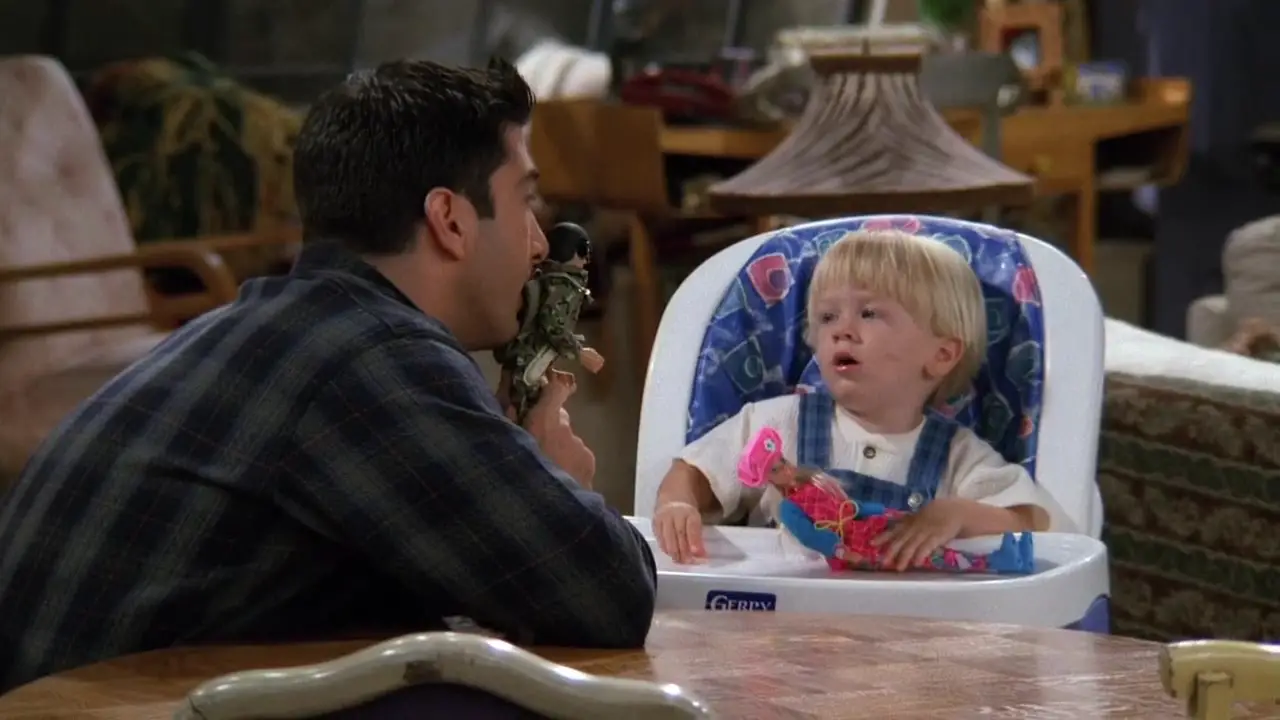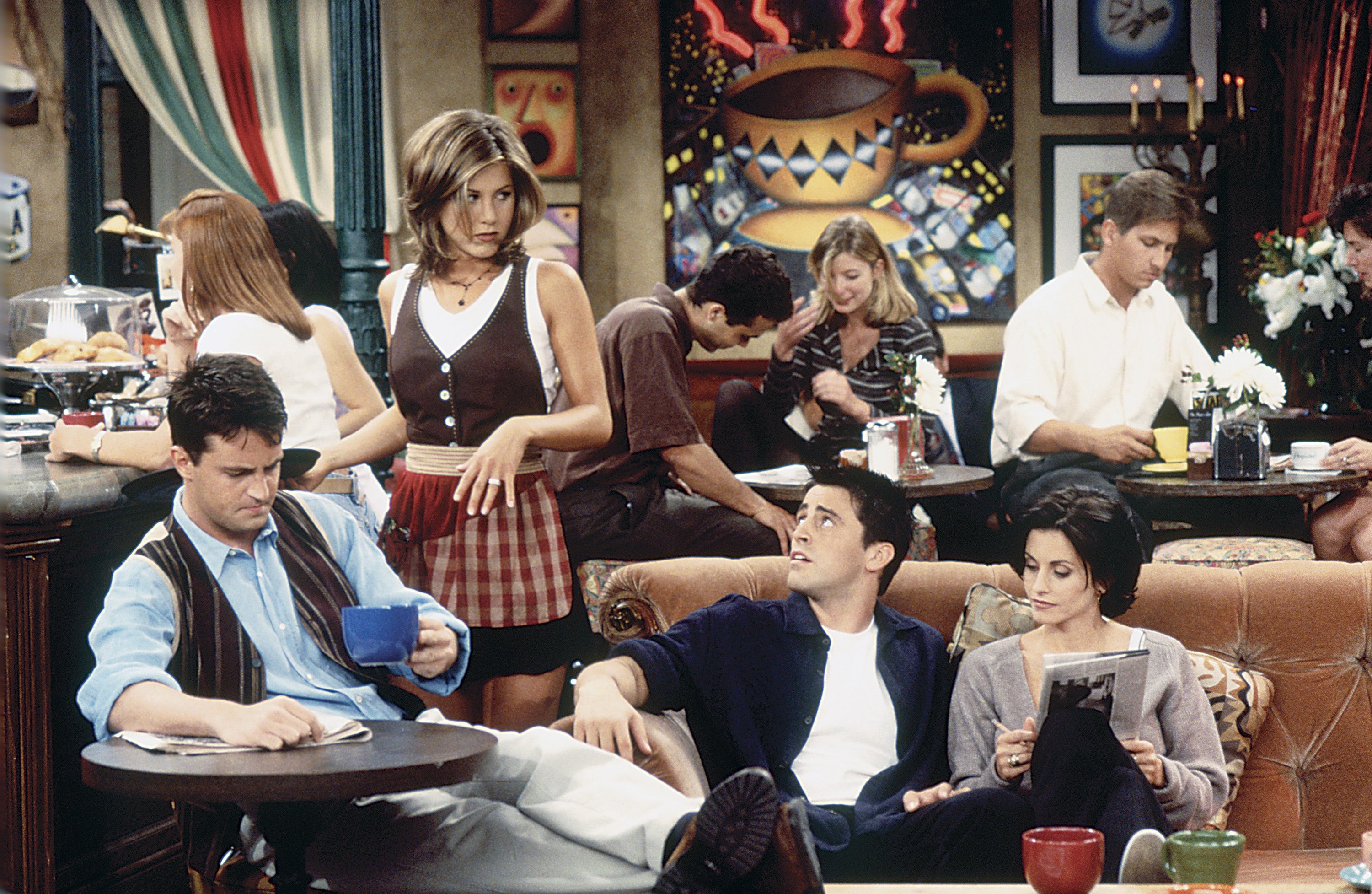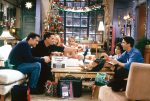If you have a Netflix account, you probably binge watched “Friends” at some point in your life, or at least saw your fair share of re-runs on TV. You probably also know that most TV shows today differ greatly from the type of humor that was used back in the ’90s and early 2000s. Today, shows aim to be more inclusive and progressive regarding diversity, but that was definitely not the case during the age of “Friends.”
No one wants to admit that some of their favorite old sitcoms were problematic or offensive, but truthfully, a lot of the TV from 10 and 20 years ago made a lot more insensitive jokes than today’s viewers might be comfortable with. Issues like homophobia, transphobia and sexism often became punchlines — even coming from the beloved “Friends” themselves.
Regardless of how many upsides the show had — and how deep my love for it remains — I can’t ignore the offensive jokes it often made that today could be seen as harmful.
The frequent “Chandler is gay” jokes
Since the other guys often saw Chandler’s “feminine” side or believed he wasn’t masculine enough, the ongoing joke was that people who didn’t know Chandler thought he was gay. And Chandler constantly got offended when others assumed he was homosexual.
Obviously, this is extremely offensive to the LGBTQ+ community. The show constantly used queerness as an insult or punchline in the show, rather than portraying it as representing a valid, equal group of people.
The drastic lack of diversity
The entire cast of “Friends” is a group of white, heterosexual, good looking people in their twenties and thirties. The best that the show could do for diversity was making Monica and Ross Jewish (which barely came up), including a lesbian couple (to be discussed later), and having fewer than 5 named people of color in all its 10 seasons.
Today, most shows include at least one person of color in the main cast: Without including minorities in major roles, people who might discriminate against them will never gain any exposure to their unique narratives. More than this, young minorities watching TV will have no role models to look up to and will feel even more marginalized. “Friends” could’ve done more to include other people’s narratives and work towards opening minds — especially with such an extensive platform.
Chandler’s trans dad existed as the butt of every joke
Having a trans character on a ’90s sitcom was, I will say, ahead of its time. But the way that “Friends” treated this character made up for this so-called progression. Chandler and his mother constantly invalidated his father’s identity as a trans woman.
Although Charles Bing seemingly identified as a woman, everyone used male pronouns. The only reason, it seems, that this character was written this way was to make transphobic jokes throughout the show. And it should also be acknowledged that they used the terms transgender and drag queen interchangeably, when they are not the same.
Ross forced gender roles on his son
On this particular episode of “Ross is the worst,” his son Ben wanted to play with a Barbie and Ross wasn’t having it. He tried, for the entire episode, to force a GI Joe doll on his son instead. He worried that the feminine toys he played with would somehow ruin his childhood and, eventually, his mental development.

Toxic masculinity permeated “Friends.” Perpetuating the idea that boys can only play with aggressive and violent things is destructive to boys and girls alike. It tells girls that what makes them feminine is inferior and encourages boys to be violent and apathetic. Let your son do what he wants, Ross.
Speaking of toxic masculinity…
There were many other instances when the guys worried about protecting their precious manhood. Ross — again — got way too uncomfortable when Rachel hired a male nanny to watch their daughter. He questioned his abilities and asked him about his sexuality — both unrelated and homophobic.
When Joey decided to buy a saddle bag, all the guys teased him for having a “purse” — despite the giant black bag not being in the least bit feminine. In another episode, Chandler was looking for his guy friends and found Joey knitting with his model roommate and Ross whitening his teeth, and then exclaimed: “Where are all the men?!”
In the minds of “Friends” characters, men have a very short list of things they can do that are socially acceptable and manly enough to keep them in the clear — which is undoubtedly problematic.
Misogyny was everywhere
Not a single episode of “Friends” went without at least a little bit of blatant sexism. All the guys — Joey, especially — constantly objectified every woman they came across. Lesbianism basically only existed in the plot as either a male aphrodisiac or a punchline.
And then smaller instances of sexism occurred throughout the series, such as the guys being grossed out by breastfeeding and the gender stereotypes existing in each character. Women weren’t in positions of power — Rachel even ended up giving her dream job up for her messy ex-boyfriend. Instead, the writers incessantly objectified them and presented them as inferior.
The shaming of “Fat Monica”
“Friends” basically created a fatter version of a character just to make fun of her, and the body shaming of Monica’s past self went beyond what should be perceived as funny. They made her larger self to be a caricature lacking any profound emotional characteristics and speaking only to get laughs. The cast just made endless jokes about her body without any regard for Monica’s or any other viewer’s feelings.
“Friends” did a lot to make modern day viewers cringe. Their old-school style of poking fun at marginalized groups and perpetuating harmful ideas did not age well. On the bright side of all this, looking back shows how much progress society has made in so short a time.
A lot has changed regarding diversity on TV in the past couple decades. This doesn’t mean you have to ditch your old favorites, but you should be aware of their downfalls and be able to call them out rather than laughing along.















